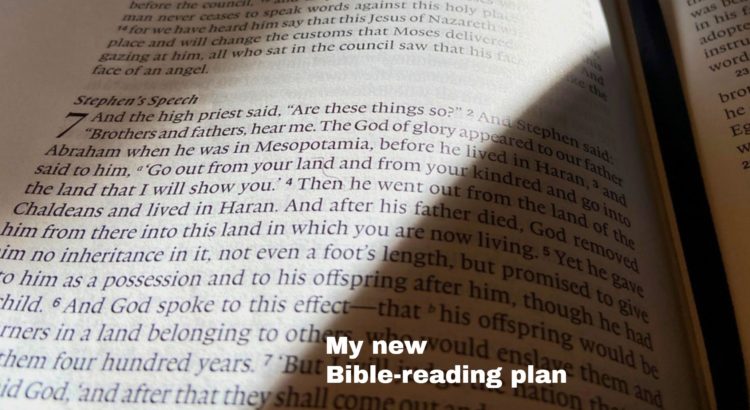“Are these things so?”
It was the question the high priest asked Stephen in Acts chapter 7 after he was accused of blaspheming against God and speaking against Moses. It’s a question posed to few of us in modern, Christian America. Rarely, if ever, are we asked to defend our faith, answer accusers, or account for what we have seen and heard God do.
Sure, I have seen young people in academic settings have their faith challenged.
I have heard of educators who feel their ability to speak up for what they belief is limited.
And I have seen confrontations in politics and in the media and attacks in Facebook comments against those who express a strong commitment to a position of faith.
But when I read this question in Acts 7:1 this morning, I paused.
I paused to consider what my answer might be.
I stopped for a moment to think about what I might say.
I wondered if my answer would be sufficient, if I would have the courage to speak up, if I could articulate the thoughts and ideas racing through my mind.
Stephen did. He answered thoroughly and thoughtfully. He answered with courage and confidence. He answered with clarity that left no doubt in the minds of his accusers as to his commitment to the truths he proclaimed.
1 Peter 3:15 contains a passage familiar to many. In it, the author writes, “…in your hearts honor Christ the Lord as holy, always being prepared to make a defense to anyone who asks you for a reason for the hope that is in you; yet do it with gentleness and respect…” It’s a challenge, certainly, for anyone to have at least a simple answer – to point someone to their hope in Christ. But this passage, like Stephen’s circumstance, is found in the context of persecution.
In verses 13 and 14, Peter writes, “Now who is there to harm you if you are zealous for what is good? But even if you should suffer for righteousness’ sake, you will be bless. Have no fear of them, nor be troubled…” which brings us back to the challenge to always be prepared to make a defense.
I imagine Peter was thinking about Stephen when he wrote these words. And I imagine, in times of persecution in the first century (Acts 8:1 says that following these events, “there arose on that day a great persecution against the church…”) there were many occasions for believers to make a defense of their faith.
And today, as I read these words, even in a time of widespread turmoil, I am reminded that I face no such persecution. I face no similar challenge. And yet, today is the day to prepare myself. Stephen didn’t hear that question – “Are these things so?” – and then go calculate a response. He was ready.
Stephen knew the story of how God had called and directed Abraham and Isaac and Jacob and Joseph and Moses. He knew the story of how God had delivered them from slavery, from the Egyptians, from affliction, and from death. Stephen knew how the Spirit of God had spoken to them and empowered them and encouraged them. And Stephen knew how God had forgiven his people through the sending of his son into their world.
Reading Stephen’s response (in the ESV, the heading calls it a “speech”), I was convicted. Am I ready to give an answer? Do I know the story of God’s calling and provision and protection and deliverance well enough to communicate it with such conviction when called upon? I hope so… but I guess not.
And this is part of the reason why I’ve embarked this season on a slow and deliberate reading of the Scriptures.
I didn’t choose a Bible reading plan. I’m not checking any boxes. I’m not following a calendar or schedule. I’m just reading, slowly and deliberately, and pausing to reflect when God speaks more loudly. I’m preparing my answer and readying my spirit, and praying that God will give me clarity and confidence whenever I have the opportunity to tell his story.
